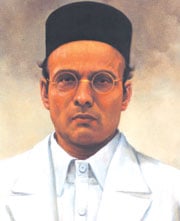By Swapan Dasgupta
There was something eerily predictable about the reactions to last Tuesday's Special Court verdict on the gruesome Godhra killings of February 26, 2002—the incident that triggered the equally horrible communal riots in Gujarat.
For a few days before Justice P.R. Patil delivered his 815-page judgment that led to the conviction of 31 of the 134 Muslims charged with either conspiracy or participation in the arson attack on the S6 coach of the Sabarmati Express, the less restrained section of the media had been speculating on the possible implications of a 'guilty' verdict. Would it inflame communal passions? Was justice at all possible in 'Narendra Modi's Gujarat'? The implications were obvious: the cause of communal harmony and justice would be best served if the entire case was thrown out.
If the questions were predictably tendentious—the Special Court had been set up in April 2009 on a Supreme Court directive and had no relation with the state government's administration of justice—the post-verdict reactions followed the 'activist' template. Father Cedric Prakash, an activist clergyman who runs an NGO, was quick to denounce Justice Patel's judgment as a 'miscarriage of justice'; Prashant Bhushan, who was briefly amicus curie in the Gulbarga Housing Society case, called the verdict a 'travesty of justice'; lawyer Mukul Sinha who had contested the 2007 Assembly election and lost his deposit, described the conviction of 31 people as based on 'concocted evidence' and 'falsehood'; and Teesta Setalvad, herself under scrutiny by the Special Investigation Team for allegedly presenting dodgy affidavits, debunked any 'conspiracy' to attack the train.
True, BJP's Jaynarain Vyas, the Gujarat Government spokesperson, did proffer a pugnacious reply to the sceptics. He gloated that 'the verdict comes as a slap on the face of all those so-called NGOs who were busy maligning Gujarat.' But his seemed an odd, contrarian voice amid the multiplicity of well-heeled 'activists' feigning outrage. Any citizen unaware of the backgrounds of the sceptics or the convoluted course of the inquiry and legal proceedings would be forgiven for harbouring the suspicion that the Special Court in Ahmedabad had been driven by an underlying political agenda.
It is understandable that there will be litigants and activists dissatisfied by a court verdict on the ground of either evidence or interpretation of the law. They have an inalienable right to approach a higher court for relief and, presumably, the Godhra case will go to the High Court. What is disturbing, however, is not the exercise of the right of appeal but the readiness with which any judgment with political overtones is rubbished in the public domain. Indian democracy offers litigants, activists and commentators a generous space to dissect judgments and court proceedings. Indeed, more often than not, lawyers and others tend to treat TV studios and newspapers columns as a substitute for arguments in the appellate courts.
On the face of it, this may appear to be a worthless and even self-defeating exercise since judges are expected to be swayed by arguments in the courtroom and not by spirited exchanges in TV studios. The judiciary, however, is not detached from society and judges don't live in ivory towers. Like any other citizen, they too are prone to being influenced by their immediate environment. The purpose behind activists using the media to argue points of law and evidence (without having to bother about the opposing counsel) is simple: create a climate of opinion favourable to the cause they are espousing and portray other perspectives (including court judgments) as a travesty.
In the past six months, the no-holds-barred attacks on court orders have become an epidemic. In September last year, there were the shrill denunciations of the Allahabad High Court judgment on the Ayodhya dispute, including suggestions of communal bias. Ironically, the loudest protests came from those who were in the forefront of demanding a judicial resolution of a very complex religio-political dispute that has defied resolution for centuries.
This was followed three months ago by the breast-beating that followed the conviction of Dr Binayak Sen on a sedition charge by a Sessions Court in Chhattisgarh. The spectacle was repeated some weeks ago when the Chhattisgarh High Court turned down Sen's bail application.
The Binayak Sen case is an eye-opener for all those concerned about the larger civic culture surrounding judicial proceedings. In an article written after Sen's conviction, an outraged Amartya Sen wrote that 'If the High Court has its thinking straight and unbiased it will overturn the decision.' Anything else, he argued, would imply that 'as happened in Gujarat—justice is difficult to get in the state which is under the control of a political regime that is keen on justifying its policies, some of which are very deeply problematic, rather than bringing justice to a people living in Chhattisgarh…' This was followed by an appeal signed by scores of Nobel Prize winners, with little familiarity of either India or the specific circumstances of the case, pressing for Sen's release.
Actually, it is Amartya Sen's pronouncement that is deeply problematic. If the integrity of the judiciary is made hostage to politically correct, rather than judicially tenable, judgments, India will lose its status as a democracy where the rule of law prevails.
In establishing pre-meditation, the Special Court in Ahmedabad relied on forensic evidence; the Allahabad High Court relied on archaeological evidence to suggest that a grand temple predated the Babri mosque in Ayodhya; and the Chhattisgarh Government relied on witness testimony and seizure records to suggest Binayak Sen's Maoist links. The conclusions of the judges were governed by evidence—a reason why 63 of the accused were acquitted in the Godhta case—and their refutation has to be based on technicalities, not on the strength of rhetoric.
A battle is either fought in the political arena or in the courts. The two can't happen simultaneously.

 "
"

